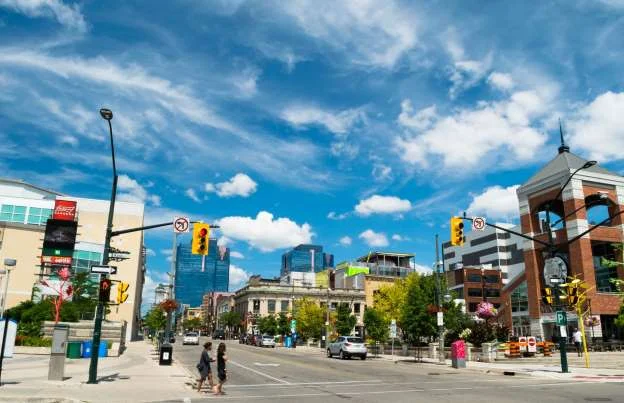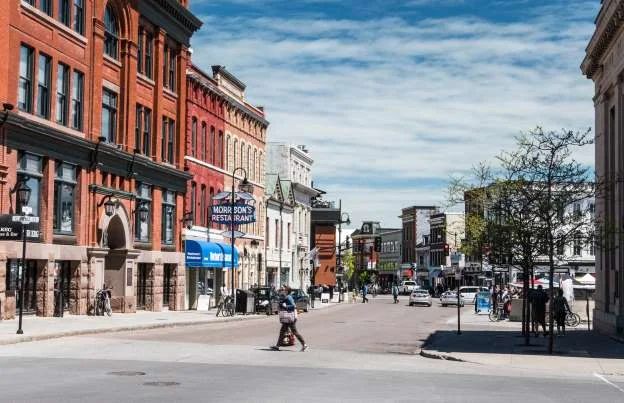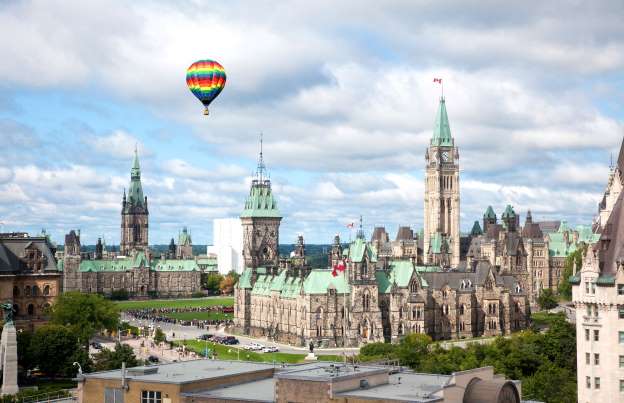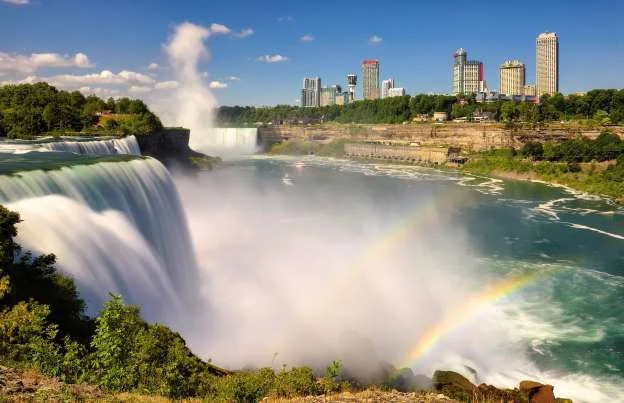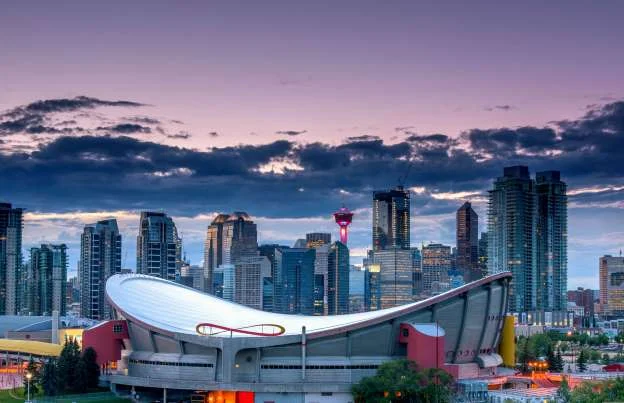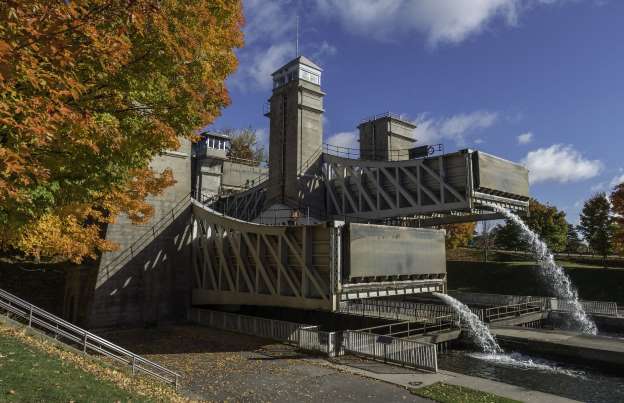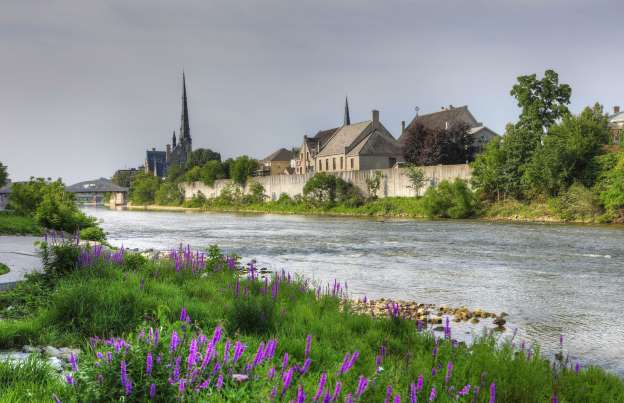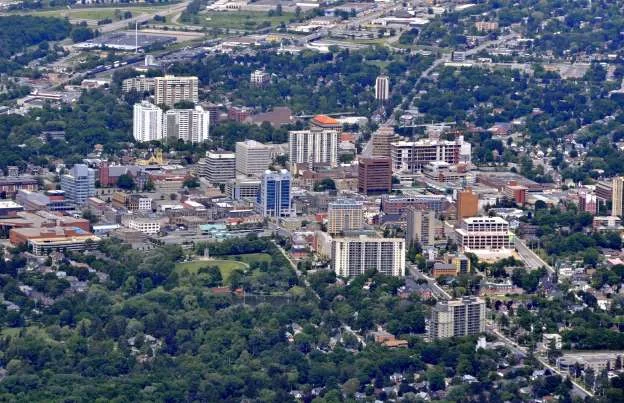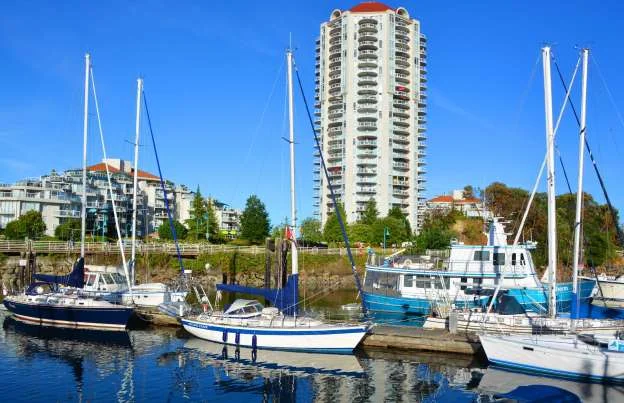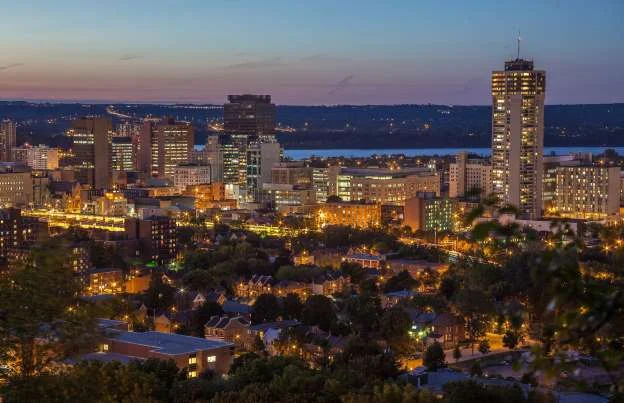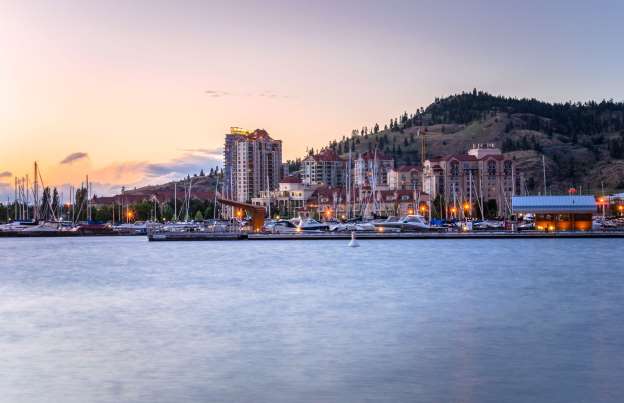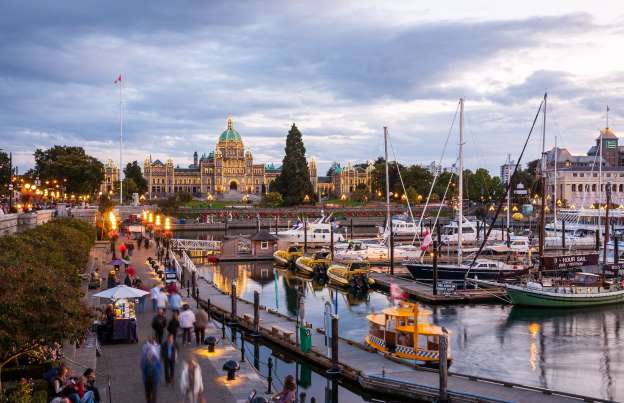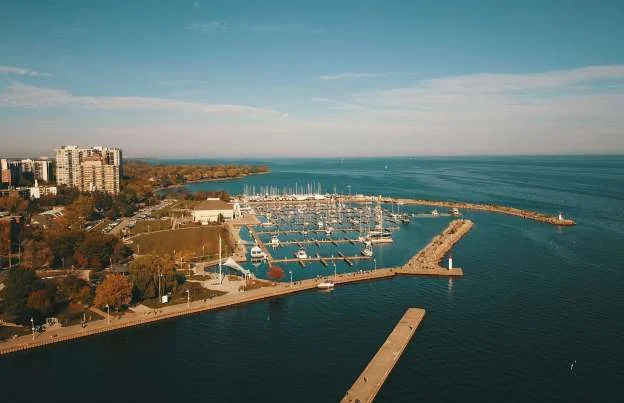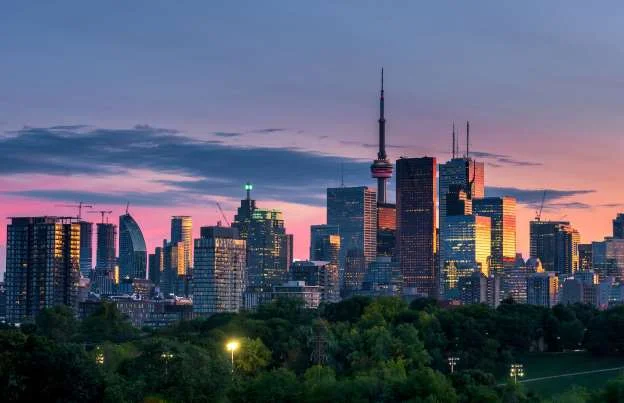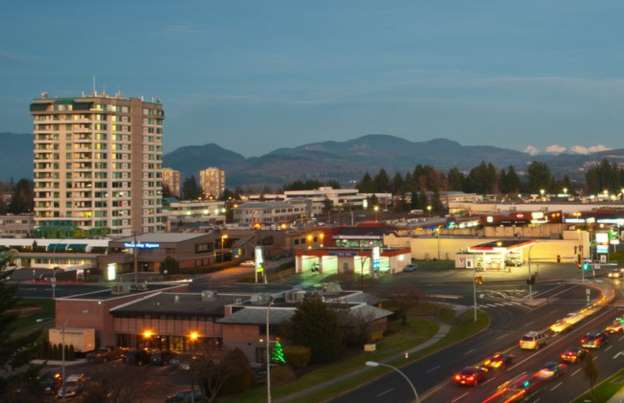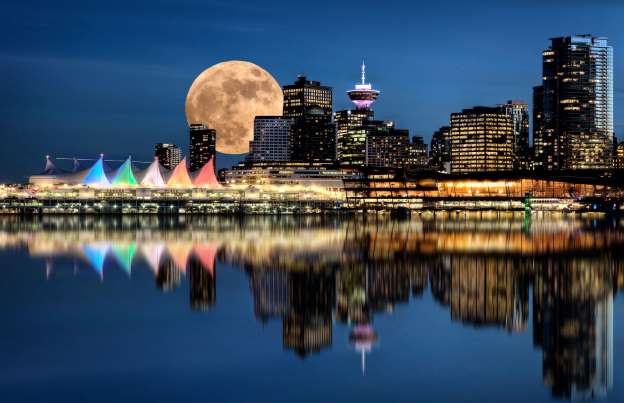The Most Expensive Cities in Canada to Buy a House
Every day, all kinds of different properties are bought and sold in cities across Canada, from humble homes to mighty mansions. Although prices vary wildly, the average price in each area gives us a sense of where to find Canada’s most expensive real estate. Here’s a look at the Canadian cities where homes cost the most. All prices come from the Canadian Real Estate Association’s July National Price Map.
Montreal - $345,000
Montreal real estate is getting more and more expensive. The average price of a house in Quebec’s biggest city rose to $345,000 in July 2018, a 5.8 per cent increase from the previous year. A recent report from the Canadian Mortgage and Housing Corporation suggests Montreal’s surging real estate market is close to “overheating.”
London and St. Thomas - $363,727
In southwestern Ontario, the neighbouring cities of London and St. Thomas have seen steady growth in real estate prices. In July 2018, the average house in the region sold for $363,727, a 12.1 per cent increase from the previous year. An exodus from the Toronto region has helped fuel growth in London, where a massive home-building boom is now in full flight.
Kingston - $378,862
Home prices in Kingston hit an average of $378,862 in July, up 13.6 per cent from the year prior. Canada’s first capital city, which sits on the northeastern shores of Lake Ontario, is seen as an affordable alternative to the high-priced regions around Toronto, and an attractive destination for house-hunting millennials looking to purchase their first property.
Ottawa - $390,100
Canada’s capital is a costly place to purchase a house: the average price rose to $390,100 in July 2018, an increase of over $26,000 from the previous year. With many single-family homes too expensive for first-time buyers, townhomes are taking off in Ottawa, with builders struggling to keep up with demand.
Niagara Region, $397,811
In the Niagara Region, which includes Niagara Falls, Niagara-on-the-Lake, and St. Catharines, the average price of a house rose to $397,811 in July, up 7.5 per cent from a year earlier. Still, sales are slowing in the region, and homes are staying on the market longer, two indicators that this area may have hit its price peak.
Calgary - $430,000
House prices are still cooling off in Calgary. The average house price was $430,000 in July, a 1.7 per cent decline from a year earlier. Ongoing decline in both sales and prices are blamed on new mortgage qualification restrictions and a lingering recession.
Guelph - $437,200
The city of Guelph, about 100 kilometres west of Toronto, is one of many communities that has seen an influx of buyers priced out of the GTA. The average cost of a home in Guelph rose to $437,200 in July, up $17,300 from 2017. Next up for Guelph: a massive downtown development project that will redevelop the Baker District into a sustainable, mixed-use neighbourhood.
Peterborough/Kawarthas - $438,489
An influx of Toronto-area buyers moving closer to cottage country has turned Peterborough and the Kawarthas into a more expensive real estate market in recent years, with an average price of $438,489 in July 2018, up 8.3 per cent from a year earlier.
Cambridge - $459,513
The average price of a home in Cambridge inched closer to half a million dollars this July, up more than $22,000 from the previous year to $459,513. This riverside city south of the Kitchener-Waterloo region has seen prices rise as a strong local economy attracts buyers from the GTA, including first-time homeowners and retirees looking to downsize.
Barrie - $472,700
About 100 kilometres north of Toronto in Barrie, home prices fell three per cent between July 2017 and July 2018, dropping from almost half a million to $472,700. The decline is largely blamed on a foreign buyers tax that came into effect in April 2017. While migration from Toronto has helped drive prices up here, a diversified local economy is bringing additional buyers to the area.
Kitchener-Waterloo - $483,240
Home prices continue to climb in the twin cities of Kitchener and Waterloo, about 100 kilometres west of Toronto. In July, the average property sold for $483,240, up almost $35,000 from a year earlier. Condominium sales are strongin this region, with buyers finding they get more bang for their buck here than in Toronto’s busy condo market.
Vancouver Island - $489,800
Even outside of Victoria and the Saanich Peninsula, the rest of the real estate market on Vancouver Island is one of Canada’s costliest. Prices in this region, covering such cities as Nanaimo, Parksville, and Comox, rose to $489,800 in July 2018, a steep increase of 13.7 per cent over the previous year. Still, even as prices rise, sales are starting to slow, indicating a more balanced market is on the way.
Hamilton/Burlington - $555,459
At the western end of Lake Ontario, the neighbouring cities of Hamilton and Burlington saw the average house prices increse to $555,459 in July 2018, up 4.7 per cent from the same period a year earlier. In this area, another impacted by ‘Toronto migration,’ prices have been on the rise for a decade.
Okanagan Mainline - $559,234
Vancouver’s coastal communities are well known for their expensive real estate, but B.C. boasts plenty of pricey properties in its interior, too. In the Okanagan Mainline, a region that runs south from Revelstoke through Vernon and Kelowna to Peachland, the average house price climbed to $559,234 in July 2018, up 10.8 per cent from the same time in 2017. Still, with sales sliding, this booming market looks set for a cooldown.
Durham Region - $584,290
East of Toronto, Durham Region is a booming area that covers communities such as Pickering, Ajax, Whitby, Oshawa, and Bowmanville. Real estate prices in the region increased 2.8 per cent to 584,290 from July 2017 to July 2018. Durham is seen as one of the most affordable places for buyers who were priced out of Toronto but want to stay close to the big city.
Victoria - $672,800
Out on Vancouver Island, Victoria is one of the country’s most expensive places to buy a home. The average price rose to $672,800 in July 2018, an increase of 8.2 per cent from a year earlier. The high cost may be partly due to the B.C. capital city’s reputation for mild, sunny weather throughout the year.
Oakville-Milton - $707,000
In Oakville and Milton, neighbouring communities on the western outskirts of the Greater Toronto Area, the average house price in July 2018 was $707,000. That was only up 0.1 per cent from the previous year. In Oakville, at least, you can buy knowing you’re settling down in MoneySense magazine’s 2018 selectionas Canada’s best place to live.
Toronto - $768,400
House prices in the Greater Toronto Area dropped by 0.6 per cent between July 2017 and July 2018, going from $773,000 to $768,400. As prices start to stabilize after years of growth, more people are getting into the market: sales were up significantly in July compared to the same period a year earlier.
Fraser Valley - $831,300
East of Vancouver, the Fraser Valley region covers a collection of cities including Delta, Surrey, White Rock, Langley, Abbotsford, and Mission. Those who can’t afford to live in costly Vancouver don’t find much relief in this expensive area, where the average house price in July 2018 was up a whopping 13.8 per cent to $831,300, some $63,000 more than the Greater Toronto Area.
Vancouver - $1,087,500
There’s no costlier city in Canada to buy property than Vancouver, where the average sale price in July 2018 was a whopping $1,087,500, up 6.7 per cent from the same time last year. Still, those high-priced homes are hard to move: sales have plunged and the real estate market is crowded with high-priced properties.



